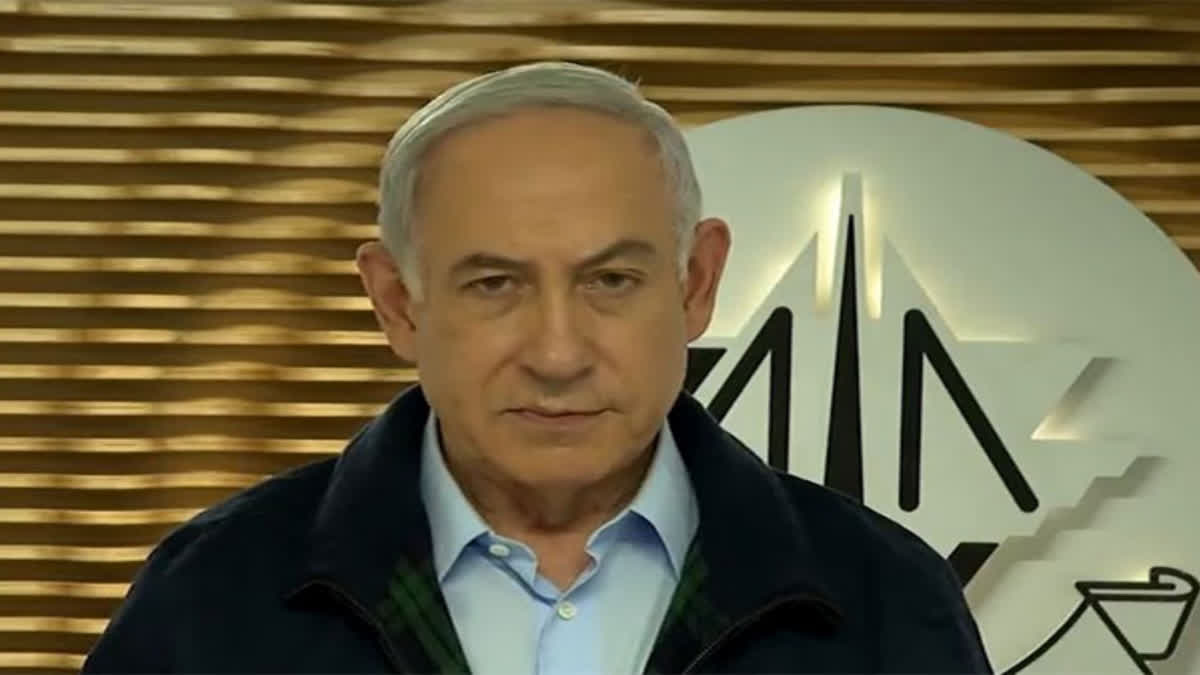New Delhi: In the midst of the ongoing Israel-Hamas war, reports suggest that the Israeli army has come up with a plan to split the Palestinian enclave of Gaza into different regions and sub-regions that will be ruled by tribes or clans or families rather than a single political entity.
Citing Israeli public broadcaster KAN, Turkey’s Anadolu news agency reported that the plan was devised by the Israeli army. It stipulates that the Gaza Strip be divided into regions and sub-regions, with Israel communicating separately with each group for matters including distribution of humanitarian aid.
According to the report, the proposed scheme may also extend to the other Palestinian territory of West Bank and recommends dividing the territories into emirates, and Israel retaining security control. This development comes amidst reports that the Israeli military has confirmed that it was pulling thousands of troops out of the Gaza Strip, a step that could clear the way for a new long-term phase of lower-intensity fighting against the Hamas militant group.
According to the Associated Press, the confirmation of the planned troop drawdown came the same day that Israel’s Supreme Court struck down a key component of Prime Minister Benjamin Netanyahu’s contentious judicial overhaul plan. While the plan is not directly connected to the war effort, it was the source of deep divisions inside Israel and had threatened the military’s readiness before the October 7 Hamas attack that triggered the ongoing war. Nearly 22,000 Palestinians, mainly women and children, and over 1,200 Israelis have lost their lives during the war.
The new Israeli army’s plan indicates that Netanyahu is trying to revive a dead entity in Gaza to counter Hamas which is the de-facto ruler of that Palestinian territory. This entity, prior to its dissolution in 2019, was called the Higher Committee for Tribal Affairs in Gaza. Palestinian President Mahmoud Abbas had established the committee in 2012 to solve social problems and disputes between Palestinian families.
However, according to a source familiar with West Asian issues, Abbas had established the committee mainly to counter Hamas in Gaza. Tensions between Fatah, Abbas’s political party that is in control of the Palestine Authority in the West Bank, and Hamas began to rise in 2005 after the death of Yasser Arafat in November 2004. After the legislative election on January 25, 2006, which resulted in a Hamas victory, relations were marked by sporadic factional fighting. This became more intense after the two parties repeatedly failed to reach a deal to share government power, escalating in June 2007 and resulting in Hamas’s takeover of Gaza.
The Higher Committee for Tribal Affairs in Gaza included 850 heads of Palestinian families distributed among 65 subcommittees tasked with conflict resolution and social reform in the Gaza Strip. The group handles many of the Gaza Strip’s social problems with Abbas calling it the “social weapon of the Palestine Liberation Organisation.”
But, in 2019, Abbas dissolved the Higher Committee for Tribal Affairs in Gaza accusing it of working with Mohammed Dahlan, his rival and leader of Fatah in Gaza. However, the committee had said at that time that it would carry on anyway because it had never received “a dime” from Abbas’s government anyway.
